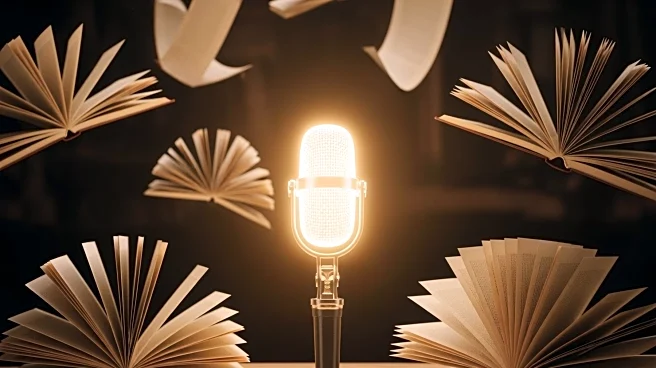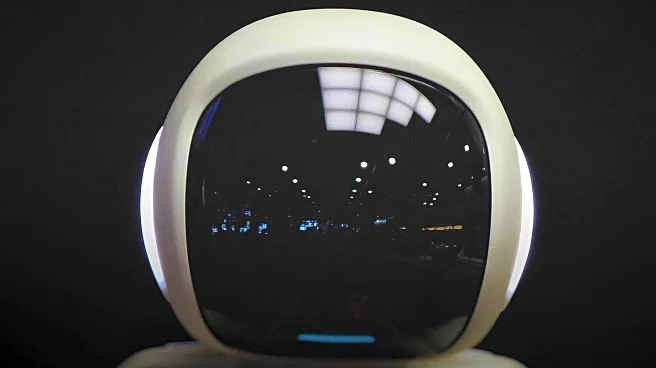What's Happening?
Julia Roberts has joined the BBC NI adaptation of Rónán Hession's bestselling novel 'Leonard and Hungry Paul' as the narrator. The Hollywood star described the book as 'magical' and expressed her delight in being part of its transition to television.
The adaptation features actors Jamie-Lee O'Donnell and Alex Lawther, and is set to premiere on Friday night. Hession, a civil servant turned novelist, received an unexpected email from Roberts' PA, leading to her involvement in the project. Despite initial doubts about the authenticity of the communication, Roberts quickly agreed to narrate the series, adding significant star power to the adaptation.
Why It's Important?
Julia Roberts' involvement in the adaptation of 'Leonard and Hungry Paul' highlights the growing trend of high-profile actors participating in television projects, which can significantly boost viewership and interest. Her participation underscores the appeal of the novel's themes of friendship, kindness, and everyday life, resonating with audiences seeking relatable and heartwarming content. The adaptation's success could influence future collaborations between Hollywood stars and literary works, potentially leading to more adaptations of novels that celebrate ordinary lives and gentle narratives.
What's Next?
The series is set to premiere soon, and its reception will likely influence future adaptations of similar novels. The involvement of Julia Roberts may attract a wider audience, increasing the show's visibility and potentially leading to further seasons or adaptations of Hession's work. The success of this project could encourage other authors and producers to seek collaborations with high-profile actors, expanding the scope and reach of literary adaptations in television.
Beyond the Headlines
The adaptation of 'Leonard and Hungry Paul' with Julia Roberts as the narrator may also spark discussions about the representation of quiet and gentle characters in media. It challenges the typical portrayal of protagonists, focusing instead on the subtlety and depth of everyday people. This could lead to a broader cultural shift in storytelling, valuing introspection and kindness over more conventional dramatic narratives.















